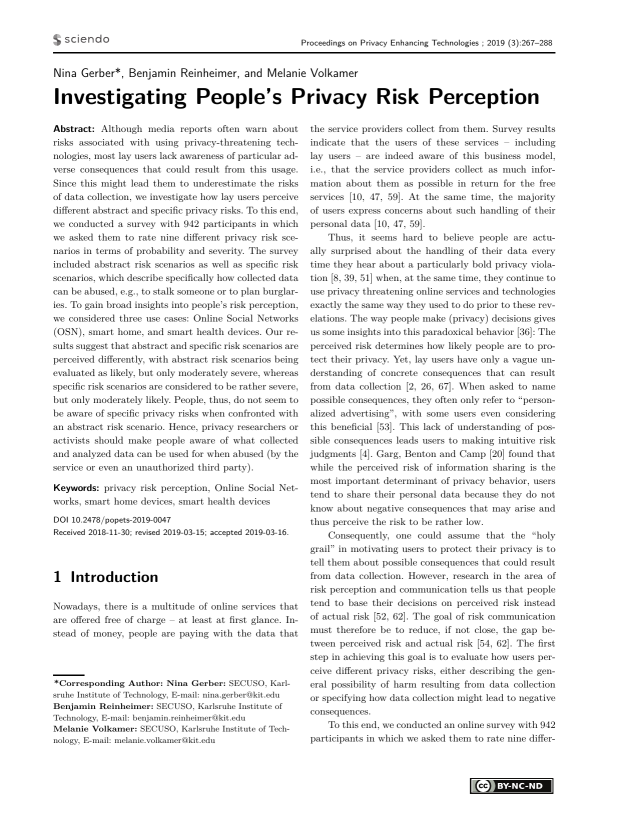Investigating People’s Privacy Risk Perception
Authors: Nina Gerber (SECUSO, Karlsruhe Institute of Technology), Benjamin Reinheimer (SECUSO, Karlsruhe Institute of Technology), Melanie Volkamer (SECUSO, Karlsruhe Institute of Technology)
Volume: 2019
Issue: 3
Pages: 267–288
DOI: https://doi.org/10.2478/popets-2019-0047
Abstract: Although media reports often warn about risks associated with using privacy-threatening technologies, most lay users lack awareness of particular adverse consequences that could result from this usage. Since this might lead them to underestimate the risks of data collection, we investigate how lay users perceive different abstract and specific privacy risks. To this end, we conducted a survey with 942 participants in which we asked them to rate nine different privacy risk scenarios in terms of probability and severity. The survey included abstract risk scenarios as well as specific risk scenarios, which describe specifically how collected data can be abused, e.g., to stalk someone or to plan burglaries. To gain broad insights into people’s risk perception, we considered three use cases: Online Social Networks (OSN), smart home, and smart health devices. Our results suggest that abstract and specific risk scenarios are perceived differently, with abstract risk scenarios being evaluated as likely, but only moderately severe, whereas specific risk scenarios are considered to be rather severe, but only moderately likely. People, thus, do not seem to be aware of specific privacy risks when confronted with an abstract risk scenario. Hence, privacy researchers or activists should make people aware of what collected and analyzed data can be used for when abused (by the service or even an unauthorized third party).
Keywords: privacy risk perception, Online Social Networks, smart home devices, smart health devices
Copyright in PoPETs articles are held by their authors. This article is published under a Creative Commons Attribution-NonCommercial-NoDerivs 3.0 license.

